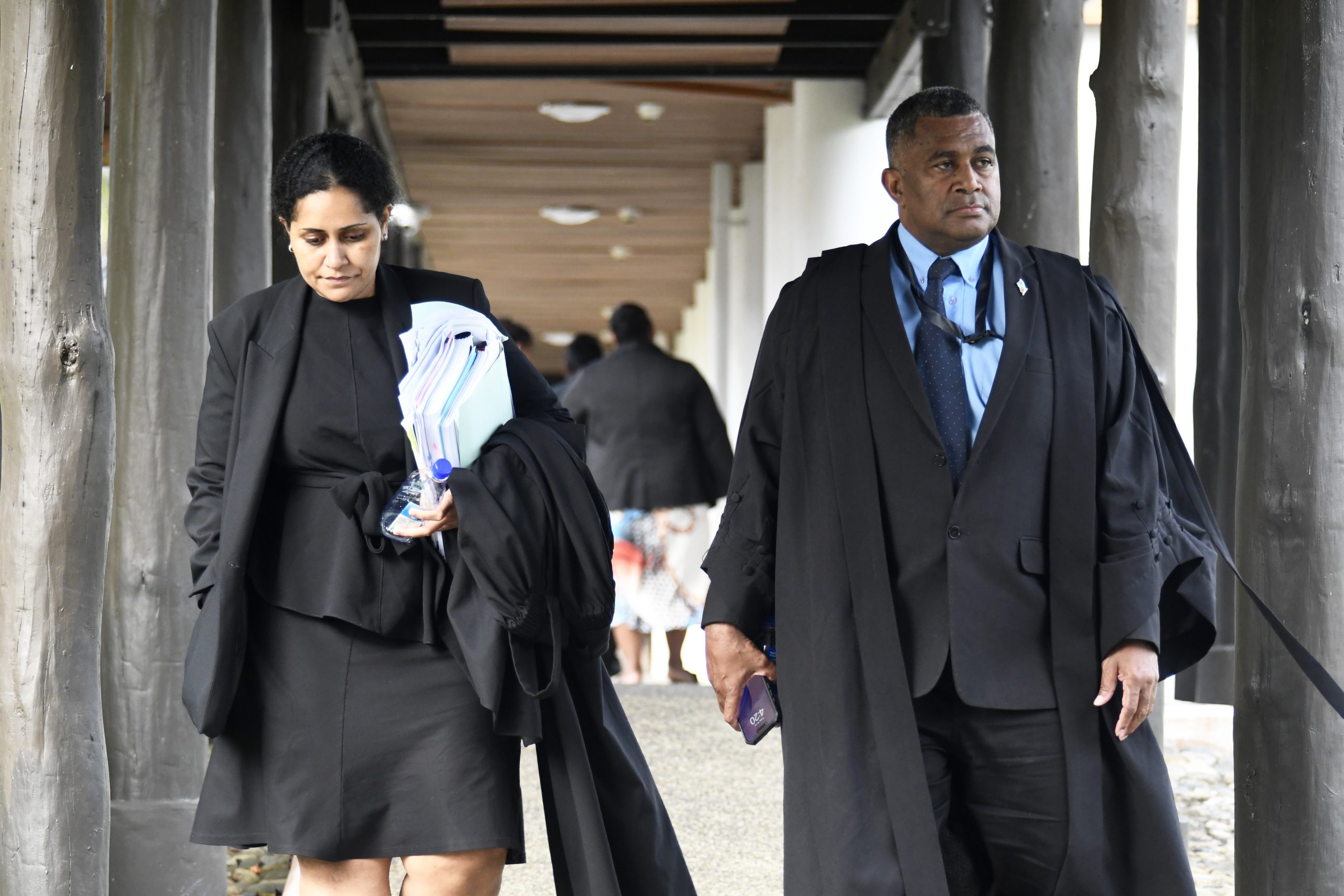THE Supreme Court has convened with intervening parties in the high-profile constitutional reference case, which focuses on whether certain parts of the 2013 Constitution can be amended and if the previously abrogated 1997 Constitution remains legally valid.
Yesterday, most intervening parties were present, and all except the State and the Unity Party have submitted their “Bundles of Authorities” (legal documents including past cases and constitutional provisions that support their arguments.)
Key Issue: Question Five
At the core of the case is Question Five, which asks whether the 1997 Constitution still holds legal validity or applicability following its abrogation.
During proceedings, Chief Justice Salesi Temo questioned the State’s position regarding the court’s jurisdiction on this matter.
He referenced Section 91(5) of the 2013 Constitution, which allows Cabinet to seek an opinion from the Supreme Court on constitutional interpretation, but said the court must operate strictly within the “four corners” of the 2013 Constitution.
“Also Section 173(4) states that notwithstanding any constitutional rule, courts, including this one, do not have jurisdiction to entertain proceedings challenging the validity or neutrality of any proclamation, decree, or declaration made as of or since May 15, 2006,” Justice Temo said.
“This was established when we first sat under the 2013 Constitution in 2014. This provision suggests we may not have jurisdiction over Question Five.”
State representative, Solicitor-General Ropate Green responded that the provision in Section 173(4) does not prevent the court from exercising jurisdiction on the issue and indicated that further elaboration would be provided by the State’s counsel.
People’s Alliance Party representative, Simione Valenitabua went further to argue that the court does have jurisdiction to consider Question Five.
He noted that the court must consider both the 1997 and 2013 constitutions in its analysis and suggested that the court possesses inherent jurisdiction that may allow it to “step outside the four corners” of the 2013 Constitution to determine the constitutionality of the 1997 Constitution’s abrogation.
“Section 91(5) mandates that to answer Question Five, the court must consider both the 1997 and the 2013 constitutions, including the abrogation of the former,” Mr Valenitabua said.
“This means that even if it seems to operate within the ‘four corners’ of the 2013 Constitution, the court can, if necessary, look beyond those limits to determine the constitutionality of the 1997 Constitution’s abrogation and render a ruling accordingly.”
Lawyer for the National Federation Party and Munro Leys, Richard Naidu also addressed the court, stating it would be unusual if Fiji’s highest court could not resolve such an important public question.
“Beyond jurisdiction, the key point is that, even if the court has authority to decide on this, under tests like those from Geneva, the 1997 Constitution is unlikely to be considered applicable now.
“There are two separate issues: whether the 1997 Constitution is valid, and whether it is applicable. The two do not always coincide.”
He said even if the court finds it has jurisdiction, the 2013 Constitution is likely the “new legal order” under international tests of constitutional validity.
Mr Naidu also raised concerns about the impact of Section 173, which limits judicial review, contrasting it with Section 3 of the constitution that requires interpretation aligned with democratic values, human dignity, and freedoms.
He questioned why a democratically mandated constitution should prevent challenges to the validity of foundational decrees.
Next steps
The Supreme Court is scheduled to reconvene on August 8 to allow parties to respond to submissions already filed.
The case remains ongoing, with several submissions and supporting documents still pending. Solicitor-General Ropate Green informed the court that the State’s submission, along with its Bundle of Authorities, would be filed by Monday.
Mr Naidu, representing the NFP, has served submissions to six of the nine interveners and is expected to complete the process in the coming days.
Naomi Rakaci, representing the Unity Party, informed Chief Justice Salesi Temo and Appellate Court president Isikeli Mataitoga that her Bundle of Authorities would be submitted within 14 days.



